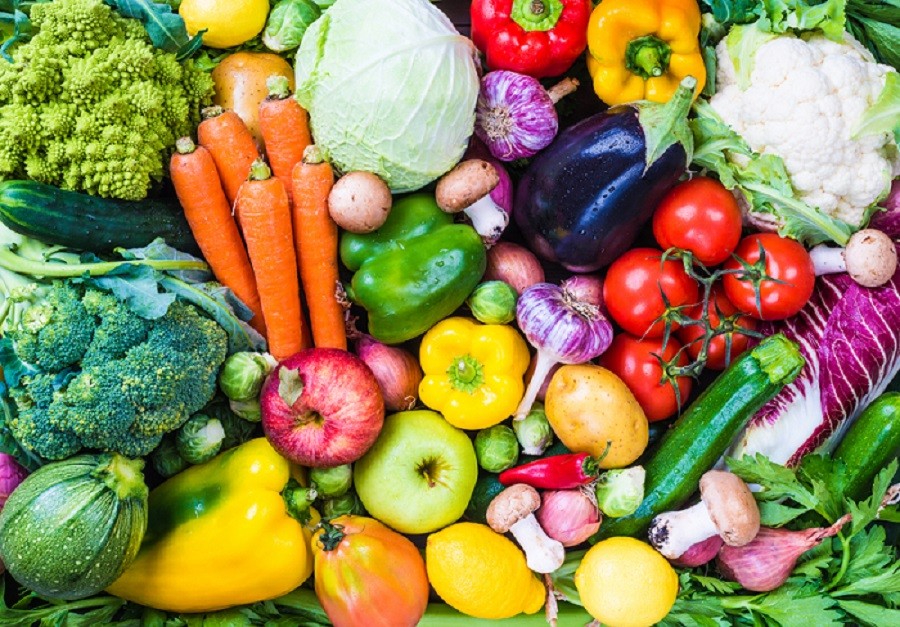Popular Reads
Top Results
Can't find what you're looking for?
View all search resultsPopular Reads
Top Results
Can't find what you're looking for?
View all search resultsVegetarians have higher risks of anemia
Change text size
Gift Premium Articles
to Anyone
C
utting meat and animal products from your diet increases your risk of anemia. The good news is that carefully balancing your diet and taking supplements can give you the nutrients you need.
People give up eating meat and animal products such as milk, cheese and eggs for many reasons. But doing so may increase the risk of anemia, a potentially serious condition in which the body does not make enough oxygen-bearing red blood cells. For vegetarians who eliminate meat, anemia can be due to an iron deficiency. For vegans, who give up all animal products including dairy, eggs, and even honey, anemia can also be caused by vitamin B12 deficiency.
The answer is to eat a carefully balanced diet — by getting needed iron and B12 from other sources, you should be able to stay committed to a vegetarian or vegan diet and prevent anemia.
The facts on iron deficiency anemia
The most common cause of anemia is iron deficiency. This means that you are not getting enough iron in your diet. Iron is necessary for carrying oxygen in the hemoglobin of your red blood cells. These cells carry oxygen throughout your body, giving you energy. Fatigue is the most common symptom of anemia, but many people have mild anemia without knowing it.
Start by learning how much iron you need every day:
- Women, ages 14 to 18: 15 milligrams (mg)
- Women, 19 to 50: 18 mg
- Women, 51 and older: 8 mg
- Men, 14 to 18: 11 mg
- Men, 19 and older: 8 mg
(Read also: 5 things to consider before a detox diet)
Iron is available in two forms: heme and non-heme. Heme iron is the most easily used by your body and is found in meat, poultry and fish. Non-heme iron is found in vegetables — your body can still use it, just not as easily.
Some of the foods that vegetarians can eat to increase iron in their diet are: fortified breakfast cereals, both hot and cold; blackstrap molasses; green leafy vegetables; dried beans, such as black and kidney beans, and lentils; whole grains; enriched rice or pasta; pumpkin seeds; prune juice; dried fruit, especially raisins.
It is a good idea to combine these iron-rich foods with foods high in vitamin C because it helps your body use iron. For example, you might want to top your spinach salad with grapefruit sections or drink a glass of orange juice as you dig into your fortified cereal in the morning.
Multivitamins often contain iron, especially those labeled for women under age 50. You should discuss the need for taking a multivitamin with iron with your doctor, and get a recommendation for which type of supplement to purchase.
The facts on vitamin B12 deficiency anemia
Also called pernicious anemia, this type of anemia is due to a lack of vitamin B12 in your diet. This B vitamin plays an important role in making red blood cells. In nature, this vitamin is only available in meat or animal products, which is why vegans must be careful to find other ways to include it in their diets. Vegetarians who eat dairy and eggs usually get enough B12 through these sources.
When you read the nutrition labels on packaged foods, look for foods fortified with vitamin B12. Here are some examples of processed foods that contain vitamin B12: fortified rice or soy milk; fortified cereal or grain products; some meat substitutes (check the labels for vitamin B12); dietary supplements, such as those labeled as containing B-complex; nutritional yeast.
If you do decide to take a dietary supplement, do some homework. For example, know that even a healthy body does not readily absorb all of the B-12 vitamin in a supplement. Talk to your doctor or nutritionist for the amount of supplemental B12 that is right for you.
Whatever your reasons for choosing a vegetarian or vegan diet, learn how to create a healthy balance that includes enough iron and vitamin B12 to stave off anemia and leave you with plenty of energy. (kes)












